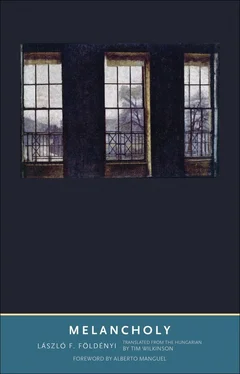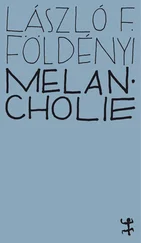She [Demeter] revealed to them the way to perform the sacred rites, and she pointed out the ritual to all of them
— the holy ritual, which it is not at all possible to ignore, to find out about,
or to speak out. The great awe of the gods holds back any speaking out.
. . . . . . . . . . . . . . . . . . .
But whoever is uninitiated in the rites, whoever takes no part in them, will never get a share of those sorts of things [that the initiated get],
once they die, down below in the dank realms of mist.
( Hymn to Demeter , 476–82)
Knowledge acquired in the mysteries was unutterable (  ). Indeed, even the names of the priests were sacred: it was forbidden to speak their names, and even in official documents only their patronymic and birthplace were mentioned. The main teaching of the mysteries was likewise not related verbally but through suggestion (
). Indeed, even the names of the priests were sacred: it was forbidden to speak their names, and even in official documents only their patronymic and birthplace were mentioned. The main teaching of the mysteries was likewise not related verbally but through suggestion (  ); the name for the priests literally means “holy presentation” (
); the name for the priests literally means “holy presentation” (  ). 31The order to keep silent arrives from the outside, though anyone who had been initiated had no need to be ordered: he would fall silent not for fear of being overheard by eavesdroppers or the curious, but out of an inner need: “In speaking we have men as teachers, but in keeping silent we have gods” (Plutarch, De moralia , 6:417). 32That inner silence, the need to keep quiet, strips down the world to such a degree that it almost vanishes into nothingness. We end up close to mysticism, the representatives of which, by no accident, have usually been recruited from among the melancholics of this world. “Accept my reason’s offerings pure, from soul and heart for aye stretched up to Thee,” one reads in a Hermetic dialogue from the Corpus Hermeticum —“O Thou unutterable, unspeakable, Whose Name naught but the Silence can express” (Hermes Trismegistus, “Pœmandres: The Shepherd of Men,” sec. 31). An infinite knowledge of (or love for) God can guide one to the unspeakability of God — and that profound, sincere feeling of ineffability can nullify God himself. “God is all Nothingness, knoweth not here nor now; / The more we grope the more elusive he will grow,” Angelus Silesius was later to write ( Alexandrines , bk. 1, no. 25). It is this experience of ungraspability that runs at the bottom of the worldview of the Greek melancholics; if I am at one and the same time more and less than myself (at one and the same time a possibility and reality of myself), if being is burdened by nonbeing, the present by the future, life by death, resurrection by extinction, then one cannot speak about the world, because there is nothing to talk about. This is the greatest danger that the mysteries present to Greek public life: those who cannot bring themselves to a recognition of the relativity of life and death, the exclusiveness of desire, must be commanded to keep silent, but those who can reach that point do not need to be commanded: having sunk into perpetual silence, recognizing transience in becoming, deficiency in completeness, they are irretrievably lost for the rest of mankind.
). 31The order to keep silent arrives from the outside, though anyone who had been initiated had no need to be ordered: he would fall silent not for fear of being overheard by eavesdroppers or the curious, but out of an inner need: “In speaking we have men as teachers, but in keeping silent we have gods” (Plutarch, De moralia , 6:417). 32That inner silence, the need to keep quiet, strips down the world to such a degree that it almost vanishes into nothingness. We end up close to mysticism, the representatives of which, by no accident, have usually been recruited from among the melancholics of this world. “Accept my reason’s offerings pure, from soul and heart for aye stretched up to Thee,” one reads in a Hermetic dialogue from the Corpus Hermeticum —“O Thou unutterable, unspeakable, Whose Name naught but the Silence can express” (Hermes Trismegistus, “Pœmandres: The Shepherd of Men,” sec. 31). An infinite knowledge of (or love for) God can guide one to the unspeakability of God — and that profound, sincere feeling of ineffability can nullify God himself. “God is all Nothingness, knoweth not here nor now; / The more we grope the more elusive he will grow,” Angelus Silesius was later to write ( Alexandrines , bk. 1, no. 25). It is this experience of ungraspability that runs at the bottom of the worldview of the Greek melancholics; if I am at one and the same time more and less than myself (at one and the same time a possibility and reality of myself), if being is burdened by nonbeing, the present by the future, life by death, resurrection by extinction, then one cannot speak about the world, because there is nothing to talk about. This is the greatest danger that the mysteries present to Greek public life: those who cannot bring themselves to a recognition of the relativity of life and death, the exclusiveness of desire, must be commanded to keep silent, but those who can reach that point do not need to be commanded: having sunk into perpetual silence, recognizing transience in becoming, deficiency in completeness, they are irretrievably lost for the rest of mankind.
The Greek physician Aretaeus of Cappadocia regarded the fear of gods and demons as one of the signs of melancholia. The lives of melancholic heroes and philosophers, however, prove that a loathing for the gods is sometimes stronger than fear: “Not even the gods fight against necessity” (a saying of the lyric poet Simonides of Ceos, quoted by Plato in Protagoras , 345d); an ambiguous relationship with divinity is possibly the most characteristic feature of Greek melancholics. On the one hand, man is an imperfect copy of god, but on the other hand, by virtue of his intellect, he is also divine. Put that way, this idea is very Christian in inspiration — just as the notion of an earthly vale of tears was also not alien to Greek culture. According to Empedocles, everything springs from suffering caused by the world, from sadness caused by human injustice. Ancient Thracians wept on greeting newborn babies and put on celebrations in honor of the dead — the melancholic view of life was hardly unknown to them. On seeing the human condition, melancholic Heraclitus wept, whereas the similarly melancholic Democritus burst into fits of laughter, though as Socrates hints in the final section of the Symposium (223d), it was most natural to the Greek spirit to see tragedy and comedy as closely related. After all, crying and laughter have their common wellspring in all-consuming despair. Man is mortal, although he knows what immortality is — for all their internal kinship, death and immortality cannot be confused. To Greek thinking, there was nothing new under the sun; 33death and immortality were conceivable only within the borders of this closed world. The melancholia of heroes and philosophers was rooted in this: their intellect was drawn to infinity, indeterminacy, the lifting of constraints and borders, disorderliness in the widest sense, but the exclusivity of the world, the ultimate boundedness and orderliness of existence, made this impossible. 34“[Ananke], necessity or fate personified (  ), binds together our existence,” says Socrates in Plato’s dialogue Theaetetus (160b): while everything closes concentrically into one, man experiences his uniqueness as exclusiveness just as much as helplessness. His inner boundlessness awakens him not just to his life’s restrictedness but also to its attendant burden: the fact that the whim of an unknown force has, as it were, handed him over to existence. This force has entrusted him with existence, which he now cannot get rid of. This whim, this personified fate (Ananke), is standing guard over his existence like a Fury, and having received life from her, he can escape only at the cost of his life; and Ananke, the goddess of inevitability and necessity, behaves like one of the Furies according to Orphic notions as well.
), binds together our existence,” says Socrates in Plato’s dialogue Theaetetus (160b): while everything closes concentrically into one, man experiences his uniqueness as exclusiveness just as much as helplessness. His inner boundlessness awakens him not just to his life’s restrictedness but also to its attendant burden: the fact that the whim of an unknown force has, as it were, handed him over to existence. This force has entrusted him with existence, which he now cannot get rid of. This whim, this personified fate (Ananke), is standing guard over his existence like a Fury, and having received life from her, he can escape only at the cost of his life; and Ananke, the goddess of inevitability and necessity, behaves like one of the Furies according to Orphic notions as well.
For powerful Necessity holds it in the bonds of a Limit, which constrains it round about, because it is decreed by divine law that Being shall not be without boundary. .
But since there is a (
spatial
) Limit, it is complete on every side, like the mass of a well-rounded sphere, equally balanced from its centre in every direction; for it is not bound to be at all either greater or less in this direction or that. . For, in all directions equal to itself, it reaches its limits uniformly.
(Parmenides, Poem , frag. 8, in Freeman, Ancilla , 44)
But if there is not, and will not be, anything beyond existence, then is it conceivable that the shackles of limits would coil around it? And does not anything that lies beyond the limits equally belong to the existing? And if the only thing abiding beyond the boundaries is Ananke, holding in her grasp the whole of existence, then does that not imply that existence is permeated by Ananke? For a melancholic,
totality is condensed into Ananke; and it is then that he is overwhelmed by the desire to escape from her authority, to step outside existence, but it is also then that the realization dawns on him that he would flee in vain: Ananke is nestling there too. By being at the mercy of existence, he is also at the mercy of himself.
Such recognition drove melancholics to despair, but it also compelled them to accomplish breathtaking feats. Bellerophon wished to rise above everything, and he had to pay a price for his hubris. 35“Strive not to become Zeus. . / Mortals must be content with mortality,” Pindar remarks ( Isthmia , 5). Bellerophon wanted to step outside life’s circles of moderation, presumably for many of the same reasons that Antiphon the sophist held life to be deplorable: “The whole of life is wonderfully open to complaint, my friend; it has nothing remarkable (  ), great or noble, but all is feeble, brief-lasting, and mingled with sorrows” (Freeman, Ancilla , 150, frag. 51). Bellerophon wanted to believe in the nonexistence of the gods, and since they had flung him back to earth, his faith lived on as a sense of loss. What he sensed was not the absence of a definite existing entity; instead, earthly existence itself had become an absence. There is no way of knowing the absence of what, specifically; the all-embracing, enclosed world is capable of successfully concealing any absence. For Bellerophon, however, this absence became an exclusive attitude to life, though he was not the least comforted by this; indeed, if anything, it made him still more unfortunate. It was as if he were falling interminably into a bottomless chasm. The explanation for his sense of absence, as with other melancholics’, we, the children of a no less depressing age, can only guess at: the finitude of their world depressed them and rendered them incapable of action. (The Spartan Lysander became melancholic because he had seized for himself every power that was attainable, from which point onward he was at a loss what to do.) Antiphon had good reason to feel that life lacked overabundance (
), great or noble, but all is feeble, brief-lasting, and mingled with sorrows” (Freeman, Ancilla , 150, frag. 51). Bellerophon wanted to believe in the nonexistence of the gods, and since they had flung him back to earth, his faith lived on as a sense of loss. What he sensed was not the absence of a definite existing entity; instead, earthly existence itself had become an absence. There is no way of knowing the absence of what, specifically; the all-embracing, enclosed world is capable of successfully concealing any absence. For Bellerophon, however, this absence became an exclusive attitude to life, though he was not the least comforted by this; indeed, if anything, it made him still more unfortunate. It was as if he were falling interminably into a bottomless chasm. The explanation for his sense of absence, as with other melancholics’, we, the children of a no less depressing age, can only guess at: the finitude of their world depressed them and rendered them incapable of action. (The Spartan Lysander became melancholic because he had seized for himself every power that was attainable, from which point onward he was at a loss what to do.) Antiphon had good reason to feel that life lacked overabundance (  ), and melancholic Empedocles saw fit to write: “In the All there is nothing empty, and nothing too full (
), and melancholic Empedocles saw fit to write: “In the All there is nothing empty, and nothing too full (  )” ( Fragments , 13). Melancholics are prominent (
)” ( Fragments , 13). Melancholics are prominent (  ) precisely because they are too full of life; because of them, existence overflows itself. That explains their unappeasable sense of absence: since they have left the world of moderation, overflowing is inconceivable without being emptied. The universe is damaged in their person; hence, melancholics’ sense of being among the elect, but also their self-hatred to the point of self-annihilation. That makes them strong and outstanding, but also exceedingly frail. Their strength is infinite, because they have gained knowledge of the end, but they are unhappy, since having experienced the ephemeral nature of humans, they have lost their trust in existence. Their strength and frailty, their unhappiness and their heroism, cannot be detached from each other. This leads us back once again to the starting point of our argument, to the Aristotelian question “Why is it that all those who have become eminent in philosophy or politics or poetry or the arts are clearly melancholic?”
) precisely because they are too full of life; because of them, existence overflows itself. That explains their unappeasable sense of absence: since they have left the world of moderation, overflowing is inconceivable without being emptied. The universe is damaged in their person; hence, melancholics’ sense of being among the elect, but also their self-hatred to the point of self-annihilation. That makes them strong and outstanding, but also exceedingly frail. Their strength is infinite, because they have gained knowledge of the end, but they are unhappy, since having experienced the ephemeral nature of humans, they have lost their trust in existence. Their strength and frailty, their unhappiness and their heroism, cannot be detached from each other. This leads us back once again to the starting point of our argument, to the Aristotelian question “Why is it that all those who have become eminent in philosophy or politics or poetry or the arts are clearly melancholic?”
Читать дальше

 ). Indeed, even the names of the priests were sacred: it was forbidden to speak their names, and even in official documents only their patronymic and birthplace were mentioned. The main teaching of the mysteries was likewise not related verbally but through suggestion (
). Indeed, even the names of the priests were sacred: it was forbidden to speak their names, and even in official documents only their patronymic and birthplace were mentioned. The main teaching of the mysteries was likewise not related verbally but through suggestion (  ); the name for the priests literally means “holy presentation” (
); the name for the priests literally means “holy presentation” (  ). 31The order to keep silent arrives from the outside, though anyone who had been initiated had no need to be ordered: he would fall silent not for fear of being overheard by eavesdroppers or the curious, but out of an inner need: “In speaking we have men as teachers, but in keeping silent we have gods” (Plutarch, De moralia , 6:417). 32That inner silence, the need to keep quiet, strips down the world to such a degree that it almost vanishes into nothingness. We end up close to mysticism, the representatives of which, by no accident, have usually been recruited from among the melancholics of this world. “Accept my reason’s offerings pure, from soul and heart for aye stretched up to Thee,” one reads in a Hermetic dialogue from the Corpus Hermeticum —“O Thou unutterable, unspeakable, Whose Name naught but the Silence can express” (Hermes Trismegistus, “Pœmandres: The Shepherd of Men,” sec. 31). An infinite knowledge of (or love for) God can guide one to the unspeakability of God — and that profound, sincere feeling of ineffability can nullify God himself. “God is all Nothingness, knoweth not here nor now; / The more we grope the more elusive he will grow,” Angelus Silesius was later to write ( Alexandrines , bk. 1, no. 25). It is this experience of ungraspability that runs at the bottom of the worldview of the Greek melancholics; if I am at one and the same time more and less than myself (at one and the same time a possibility and reality of myself), if being is burdened by nonbeing, the present by the future, life by death, resurrection by extinction, then one cannot speak about the world, because there is nothing to talk about. This is the greatest danger that the mysteries present to Greek public life: those who cannot bring themselves to a recognition of the relativity of life and death, the exclusiveness of desire, must be commanded to keep silent, but those who can reach that point do not need to be commanded: having sunk into perpetual silence, recognizing transience in becoming, deficiency in completeness, they are irretrievably lost for the rest of mankind.
). 31The order to keep silent arrives from the outside, though anyone who had been initiated had no need to be ordered: he would fall silent not for fear of being overheard by eavesdroppers or the curious, but out of an inner need: “In speaking we have men as teachers, but in keeping silent we have gods” (Plutarch, De moralia , 6:417). 32That inner silence, the need to keep quiet, strips down the world to such a degree that it almost vanishes into nothingness. We end up close to mysticism, the representatives of which, by no accident, have usually been recruited from among the melancholics of this world. “Accept my reason’s offerings pure, from soul and heart for aye stretched up to Thee,” one reads in a Hermetic dialogue from the Corpus Hermeticum —“O Thou unutterable, unspeakable, Whose Name naught but the Silence can express” (Hermes Trismegistus, “Pœmandres: The Shepherd of Men,” sec. 31). An infinite knowledge of (or love for) God can guide one to the unspeakability of God — and that profound, sincere feeling of ineffability can nullify God himself. “God is all Nothingness, knoweth not here nor now; / The more we grope the more elusive he will grow,” Angelus Silesius was later to write ( Alexandrines , bk. 1, no. 25). It is this experience of ungraspability that runs at the bottom of the worldview of the Greek melancholics; if I am at one and the same time more and less than myself (at one and the same time a possibility and reality of myself), if being is burdened by nonbeing, the present by the future, life by death, resurrection by extinction, then one cannot speak about the world, because there is nothing to talk about. This is the greatest danger that the mysteries present to Greek public life: those who cannot bring themselves to a recognition of the relativity of life and death, the exclusiveness of desire, must be commanded to keep silent, but those who can reach that point do not need to be commanded: having sunk into perpetual silence, recognizing transience in becoming, deficiency in completeness, they are irretrievably lost for the rest of mankind. ), binds together our existence,” says Socrates in Plato’s dialogue Theaetetus (160b): while everything closes concentrically into one, man experiences his uniqueness as exclusiveness just as much as helplessness. His inner boundlessness awakens him not just to his life’s restrictedness but also to its attendant burden: the fact that the whim of an unknown force has, as it were, handed him over to existence. This force has entrusted him with existence, which he now cannot get rid of. This whim, this personified fate (Ananke), is standing guard over his existence like a Fury, and having received life from her, he can escape only at the cost of his life; and Ananke, the goddess of inevitability and necessity, behaves like one of the Furies according to Orphic notions as well.
), binds together our existence,” says Socrates in Plato’s dialogue Theaetetus (160b): while everything closes concentrically into one, man experiences his uniqueness as exclusiveness just as much as helplessness. His inner boundlessness awakens him not just to his life’s restrictedness but also to its attendant burden: the fact that the whim of an unknown force has, as it were, handed him over to existence. This force has entrusted him with existence, which he now cannot get rid of. This whim, this personified fate (Ananke), is standing guard over his existence like a Fury, and having received life from her, he can escape only at the cost of his life; and Ananke, the goddess of inevitability and necessity, behaves like one of the Furies according to Orphic notions as well. ), great or noble, but all is feeble, brief-lasting, and mingled with sorrows” (Freeman, Ancilla , 150, frag. 51). Bellerophon wanted to believe in the nonexistence of the gods, and since they had flung him back to earth, his faith lived on as a sense of loss. What he sensed was not the absence of a definite existing entity; instead, earthly existence itself had become an absence. There is no way of knowing the absence of what, specifically; the all-embracing, enclosed world is capable of successfully concealing any absence. For Bellerophon, however, this absence became an exclusive attitude to life, though he was not the least comforted by this; indeed, if anything, it made him still more unfortunate. It was as if he were falling interminably into a bottomless chasm. The explanation for his sense of absence, as with other melancholics’, we, the children of a no less depressing age, can only guess at: the finitude of their world depressed them and rendered them incapable of action. (The Spartan Lysander became melancholic because he had seized for himself every power that was attainable, from which point onward he was at a loss what to do.) Antiphon had good reason to feel that life lacked overabundance (
), great or noble, but all is feeble, brief-lasting, and mingled with sorrows” (Freeman, Ancilla , 150, frag. 51). Bellerophon wanted to believe in the nonexistence of the gods, and since they had flung him back to earth, his faith lived on as a sense of loss. What he sensed was not the absence of a definite existing entity; instead, earthly existence itself had become an absence. There is no way of knowing the absence of what, specifically; the all-embracing, enclosed world is capable of successfully concealing any absence. For Bellerophon, however, this absence became an exclusive attitude to life, though he was not the least comforted by this; indeed, if anything, it made him still more unfortunate. It was as if he were falling interminably into a bottomless chasm. The explanation for his sense of absence, as with other melancholics’, we, the children of a no less depressing age, can only guess at: the finitude of their world depressed them and rendered them incapable of action. (The Spartan Lysander became melancholic because he had seized for himself every power that was attainable, from which point onward he was at a loss what to do.) Antiphon had good reason to feel that life lacked overabundance (  ), and melancholic Empedocles saw fit to write: “In the All there is nothing empty, and nothing too full (
), and melancholic Empedocles saw fit to write: “In the All there is nothing empty, and nothing too full (  )” ( Fragments , 13). Melancholics are prominent (
)” ( Fragments , 13). Melancholics are prominent (  ) precisely because they are too full of life; because of them, existence overflows itself. That explains their unappeasable sense of absence: since they have left the world of moderation, overflowing is inconceivable without being emptied. The universe is damaged in their person; hence, melancholics’ sense of being among the elect, but also their self-hatred to the point of self-annihilation. That makes them strong and outstanding, but also exceedingly frail. Their strength is infinite, because they have gained knowledge of the end, but they are unhappy, since having experienced the ephemeral nature of humans, they have lost their trust in existence. Their strength and frailty, their unhappiness and their heroism, cannot be detached from each other. This leads us back once again to the starting point of our argument, to the Aristotelian question “Why is it that all those who have become eminent in philosophy or politics or poetry or the arts are clearly melancholic?”
) precisely because they are too full of life; because of them, existence overflows itself. That explains their unappeasable sense of absence: since they have left the world of moderation, overflowing is inconceivable without being emptied. The universe is damaged in their person; hence, melancholics’ sense of being among the elect, but also their self-hatred to the point of self-annihilation. That makes them strong and outstanding, but also exceedingly frail. Their strength is infinite, because they have gained knowledge of the end, but they are unhappy, since having experienced the ephemeral nature of humans, they have lost their trust in existence. Their strength and frailty, their unhappiness and their heroism, cannot be detached from each other. This leads us back once again to the starting point of our argument, to the Aristotelian question “Why is it that all those who have become eminent in philosophy or politics or poetry or the arts are clearly melancholic?”










